Higher education in Italy for international students
-
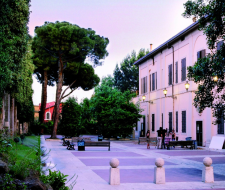 The university ranks the position 17th as one of the Top 25 Best Fashion Universities
The university ranks the position 17th as one of the Top 25 Best Fashion Universities ItalyRomeCurrently watching: 8from 17000.00 € / yearApply with documents
ItalyRomeCurrently watching: 8from 17000.00 € / yearApply with documents -
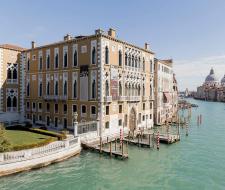 The university ranks the position 17th as one of the Top 25 Best Fashion Universities
The university ranks the position 17th as one of the Top 25 Best Fashion Universities ItalyVeniceCurrently watching: 6from 17000.00 € / yearApply with documents
ItalyVeniceCurrently watching: 6from 17000.00 € / yearApply with documents -
 Сooperation with Valentino, Chanel, Dior, Dolce & Gabanna, Gucci, Fendi, Versace
Сooperation with Valentino, Chanel, Dior, Dolce & Gabanna, Gucci, Fendi, Versace ItalyMilanCurrently watching: 5from 14700.00 € / yearApply with documents
ItalyMilanCurrently watching: 5from 14700.00 € / yearApply with documents -
 The university ranks the position 17th as one of the Top 25 Best Fashion Universities
The university ranks the position 17th as one of the Top 25 Best Fashion Universities ItalyMilanCurrently watching: 3from 8100.00 € / semesterApply with documents
ItalyMilanCurrently watching: 3from 8100.00 € / semesterApply with documents -
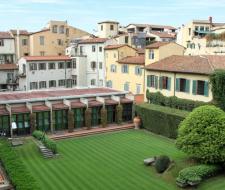 The university ranks the position 17th as one of the Top 25 Best Fashion Universities
The university ranks the position 17th as one of the Top 25 Best Fashion Universities ItalyFlorenceCurrently watching: 3from 8100.00 € / semesterApply with documents
ItalyFlorenceCurrently watching: 3from 8100.00 € / semesterApply with documents -
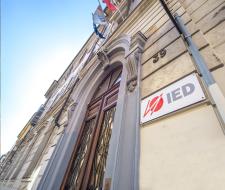 The university ranks the position 17th as one of the Top 25 Best Fashion Universities
The university ranks the position 17th as one of the Top 25 Best Fashion Universities ItalyTurinCurrently watching: 4from 17000.00 € / yearApply with documents
ItalyTurinCurrently watching: 4from 17000.00 € / yearApply with documents -
 Сooperation with Valentino, Chanel, Dior, Dolce & Gabanna, Gucci, Fendi, Versace
Сooperation with Valentino, Chanel, Dior, Dolce & Gabanna, Gucci, Fendi, Versace ItalyFlorenceCurrently watching: 4from 10200.00 € / yearApply with documents
ItalyFlorenceCurrently watching: 4from 10200.00 € / yearApply with documents -
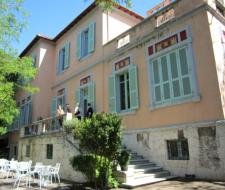 The university ranks the position 17th as one of the Top 25 Best Fashion Universities
The university ranks the position 17th as one of the Top 25 Best Fashion Universities ItalyCagliariCurrently watching: 6from 17000.00 € / yearApply with documents
ItalyCagliariCurrently watching: 6from 17000.00 € / yearApply with documents -
 from 8400.00 € / yearApply with documents
from 8400.00 € / yearApply with documents -
 from 30000.00 € / yearApply with documents
from 30000.00 € / yearApply with documents
Alternative destinations
Education information
Today, Italy attracts a wide range of foreign students from all over the world with high-quality educational services, amazing cuisine and interesting culture. Many international students choose studying in Italy as it's a great opportunity to combine effective courses with exciting rest. SMAPSE offers TOP-50 prestigious schools, colleges and universities located in Italy where international students can get high-quality higher education.
Please, don't hesitate to contact SMAPSE experts as they are always ready to answer all your questions.
Higher Education in Italy: A Guide for International Students
Universities in Italy welcome international students to embark on their academic pursuits with the academic year typically commencing in October or November. The educational experience is marked by intensive study, a substantial focus on theoretical content, and three academic sessions per year. Each student takes charge of their own course plan, including scheduling exams, and attending lectures is a mandatory part of the curriculum.
Degrees and Graduation
Italy's educational framework for higher education mirrors the three-tiered structure of the Bologna system, albeit with distinct degree titles: Laurea (Bachelor's degree), Laurea Magistrale (Master's degree), and Dottorato di Ricerca (Doctoral studies). The traditional Bachelor's program spans three years, catering to those seeking fundamental knowledge in their chosen field.
Admission Process for Higher Education in Italy
Entering an Italian university is known for its simplicity. Generally, to enroll in a state university in Italy, students often only need to complete 1-2 courses at the undergraduate level. Private institutions, on the other hand, may have varying admission requirements, including a school certificate, a motivation letter, an interview, and a minimum IELTS score of 5.5 for programs conducted in English.

What firstly should be considered when choosing a university?
It depends on the student - everyone determines the most important criteria for himself. I would advise you to take several rankings and compare them with each other, plus take into account the cost of the course, the location of the university and its scale, the percentage of graduates' employment. See where graduates continue their studies or where they go to work.
Studying in Italy for International Students
-
Cost Considerations: The cost range for foreign students varies significantly. Public institutions offer reasonably priced programs, while private universities provide elite academic environments at a higher cost.
-
Diverse Academic Opportunities: Italy offers a wide array of courses and study options. The country boasts multidisciplinary universities, with both humanities and technical fields held in high regard. Fields such as design, fashion, architecture, and advertising are particularly popular due to their high-quality education and prestigious diplomas. Other sought-after specialties include software engineering, chemical and metallurgical engineering, financial management, medical professions, environmental inspection, and securities market expertise.
-
Financial Support: Foreign students have the opportunity to seek financial assistance or secure scholarships based on their academic performance.
-
Cultural and Personal Enrichment: Living in cities with a high standard of living provides a unique cultural and historical backdrop for personal and creative growth.
-
Language of Instruction: Public universities predominantly offer programs in Italian, requiring a minimum Intermediate-level proficiency for entry. However, private universities offer numerous English-language programs, including many Master's programs.
-
Affordability: Italy offers competitive program costs compared to other EU countries. Tuition fees for foreign students at state universities typically range from 500 to 3500 euros per year (registration fee), while private university fees often surpass 8500 to 25000 euros annually. Costs are influenced by the type of institution, its reputation, and its global ranking.
Important Admission Details for International Students
-
Entrance Exams: Typically, entrance exams are not required, except for certain specialized programs.
-
Document Preparation: Begin the document preparation process early, with document initiation in January and submission to the embassy between April and May. This process involves obtaining an apostille for your school certificate and a certificate of completion for 1-2 university courses, as well as translating documents into Italian.
-
Diploma Confirmation: Before submitting documents, it is essential to confirm your diploma through "Dichiarazione di Valore," a certification issued exclusively by Italian consulates.
-
Application Limitation: You may apply to only one university per year.
-
Invitation Process: Once your documents are submitted to the embassy, you will receive an invitation to proceed with your application.
Higher education in Italy. Cost and fees for international students
Italy, the birthplace of the Renaissance, boasts a rich academic heritage and offers a wide range of higher education opportunities. Italian universities are among the oldest in the world, with the University of Bologna, founded in 1088, often cited as the world's oldest. The higher education system in Italy is mainly comprised of universities, polytechnics, and specialized institutions, offering undergraduate, postgraduate, and doctoral programs. Courses are predominantly taught in Italian, but an increasing number of English-taught programs are emerging to cater to international students. Tuition fees at Italian universities vary significantly based on the institution, course, and the student's nationality. Public universities in Italy have notably lower tuition fees compared to many other Western European or North American countries. For EU students, the fees are often based on the student's family income and can range from as low as 900 to 3,500 euros per year for an undergraduate program. However, non-EU international students typically pay higher fees, which can range from 900 to about 4,000 euros or more annually. Some prestigious or specialized programs might have higher fees, regardless of the student's nationality. Private universities generally have higher tuition fees, which can be anywhere from 6,000 to 20,000 euros per year or even more, depending on the program and institution. International students should also be aware of other potential costs, including living expenses, books, and administrative fees. On the brighter side, there are numerous scholarships and financial aid options available for international students, offered by universities, regional bodies, or the Italian government. These scholarships can either cover a part of the tuition fee, living expenses, or sometimes both.
Italy, with its blend of historical academic prestige and modern-day research facilities, remains a sought-after destination for many international students. Those considering Italy for higher education should invest time in researching specific universities, available scholarships, and the nuances of the chosen course to make the most informed decision.
General statistics on education in Italy - rankings, specialties, universities
Learning programs-summary information
| Name | Meaning | Equivalent | Min. age | Duration, years |
Next stage | Cost |
|---|---|---|---|---|---|---|
| GCSE | General certificate of secondary education | secondary education (non-accomplished) | 14 | 1–2 | A-Levels | 15,000 USD+ |
| A-Levels | Advanced level | secondary education (accomplished) | 16 | 2 | University | 15,000 USD+ |
| BTEC | Business and Technology Education Board | secondary special education | 14 | 2–3 | University/ work | 15,000 USD+ |
| Oxbridge Preparation | Preparing for Oxford and Cambridge | secondary education (accomplished) | 17 | 1 | University | 15,000 USD+ |
| International Baccalaureate | International baccalaureate | secondary education (accomplished) | 16 | 2 | University | 18,000 USD+ |
| Foundation/ Pathway Year | Preparatory year | admission to the 1st year of university | 17 | 1 | University | 14,000 USD+ |
| NCUK | The Northern consortium | 2 year university | 17,5 | 1 | 2 year University of NCUK | 13,000 USD+ |
| Special Preparation (Medics/Math/Business) | Specialized training | - | 14 | optional | optional | 4,000 USD+ |
| Academic English | Academic English | Language school | 8 + | 6–12 months | School or University | 8,000 USD+ |
Top 15 best universities in Switzerland 2024
| 1 | Glion Institute of Higher Education Switzerland |
| 2 | Les Roches International School Montana |
| 3 | César Ritz Colleges Switzerland |
| 4 | IHTTI School of Hotel Management |
| 5 | Ecole Hoteliere de Lausanne |
| 6 | Geneva Business School |
| 7 | EU Business School Montreux |
| 8 | HIM Hotel Institute Montreux |
| 9 | Swiss Hotel Management School |
| 10 | Webster University Geneva |
| 11 | Business and Hotel Management School |
| 12 | Luzern IMI |
| 13 | Swiss Hotel Management School (SHMS) Caux |
| 14 | International University in Geneva |
| 15 | Culinary Arts Academy Switzerland |



